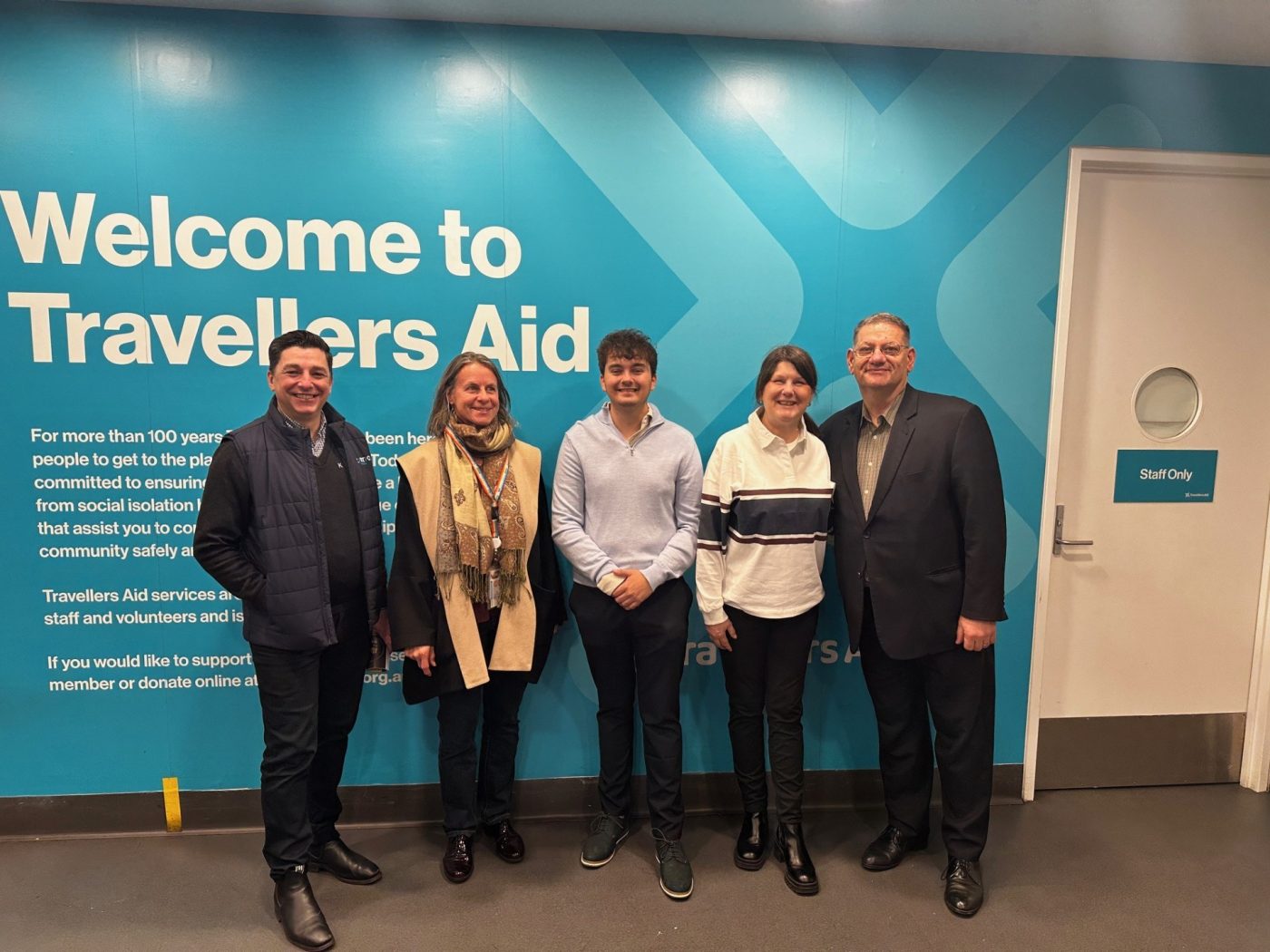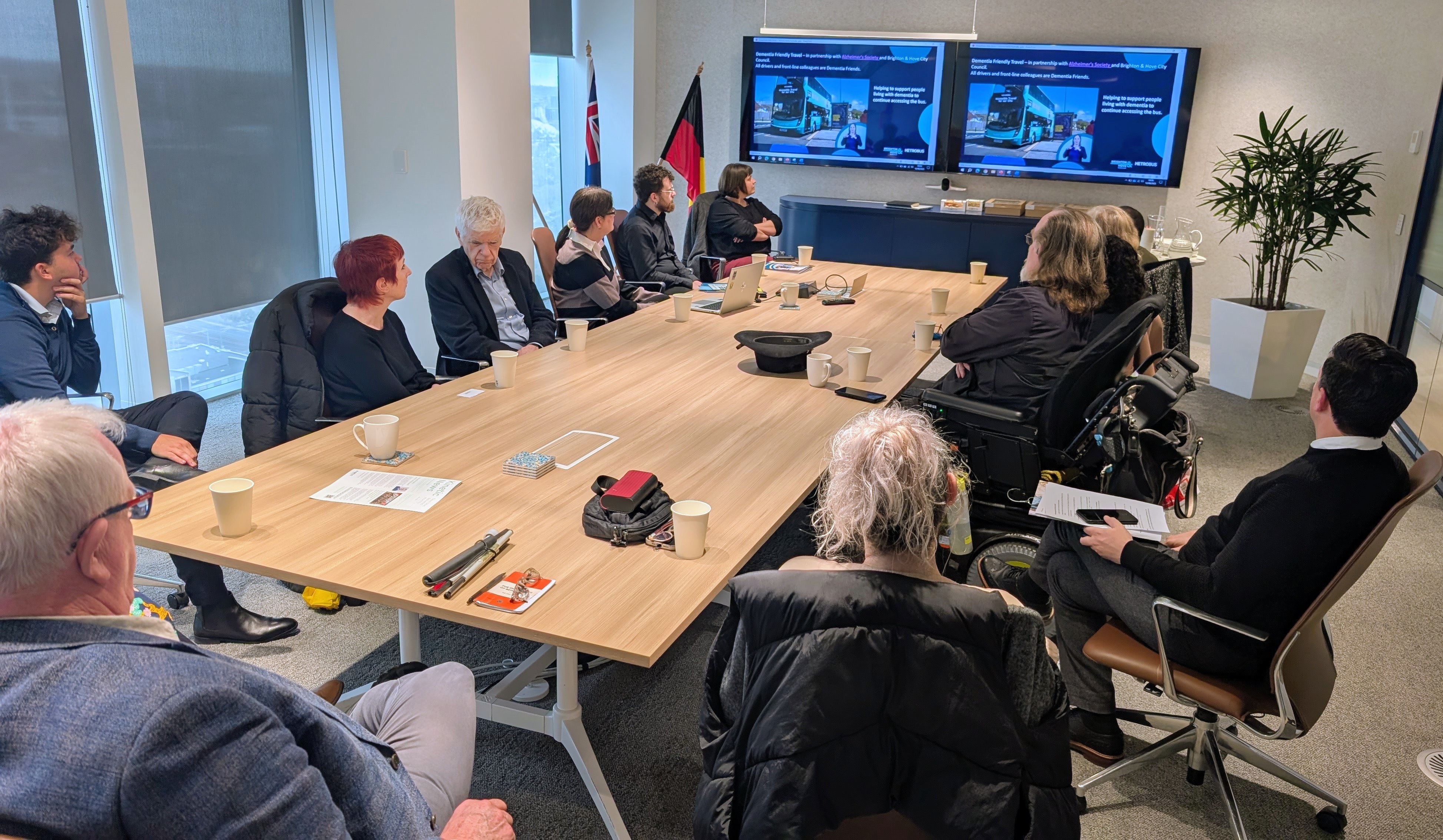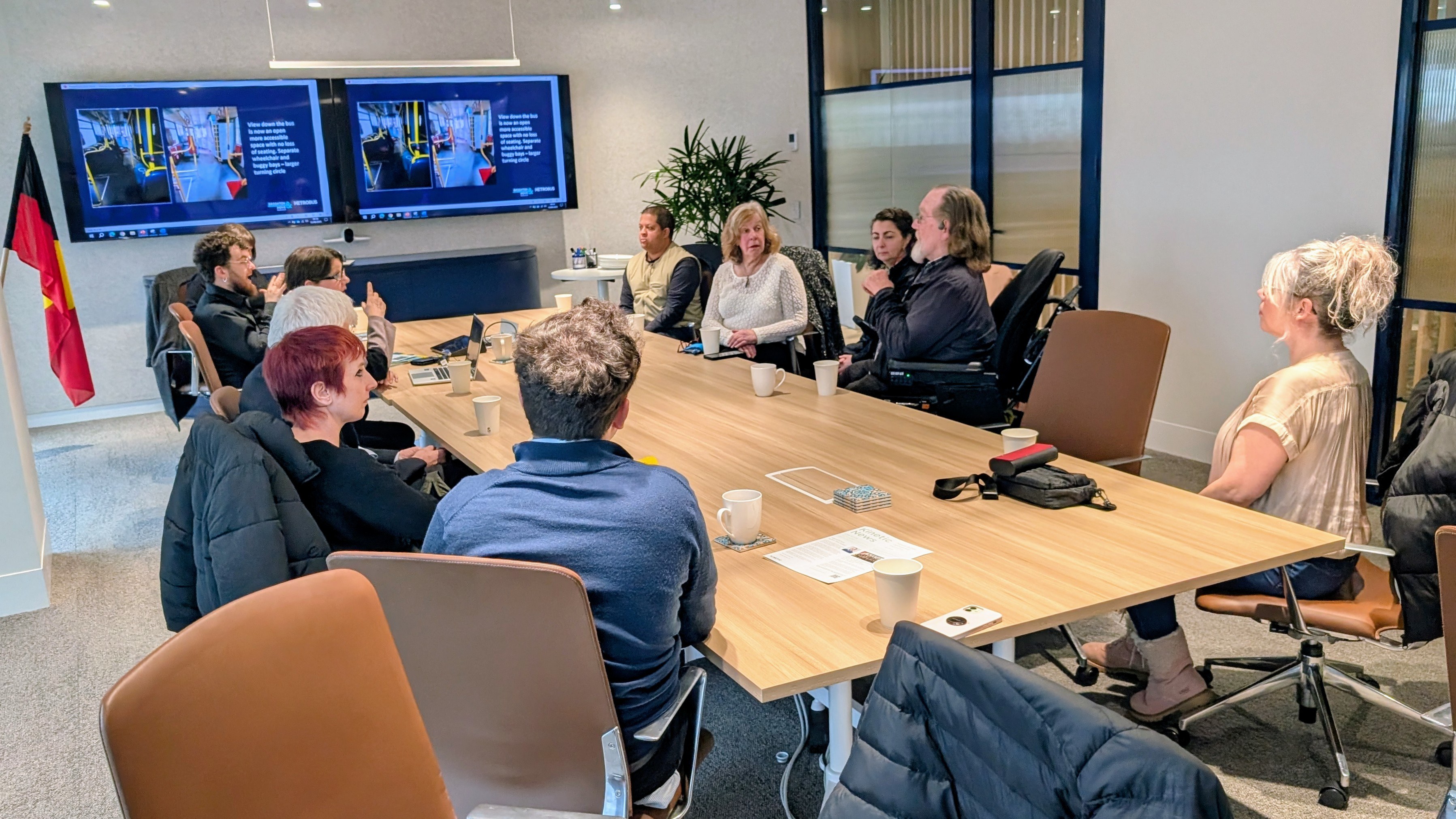Learning from leaders: UK accessibility pioneer shares insights with Australian teams

When Victoria Garcia MBE stepped into Brighton and Hove Buses' customer service department in 2010, she was simply looking to return to work after a traumatic head injury that left her managing multiple seizures. What happened next would revolutionise accessibility in UK public transport and create a blueprint for inclusive practices now being shared across Kinetic's global operations.
As the Accessibility and Communities Manager for Brighton and Hove Buses and Metrobus (part of the Go-Ahead Group under Kinetic) and the UK's newly appointed Disability and Access Ambassador for Buses and Coaches, Victoria recently visited Australia as part of a visit aimed at sharing learnings across both our UK and Australian operations to create better transport experiences for everyone.
Victoria's journey into accessibility began with lived experience. After managing her traumatic head injury and returning to work, she noticed trends in customer complaints, particularly around accessibility issues.
"I recognised a pattern where our complaints were very high in accessibility areas," Victoria explains.
What started as a desire to respond to customer needs saw an industry-leading move. Victoria became the first bus-specific accessibility professional in the United Kingdom. Today, more than a decade later, there are still only four people doing similar work across the entire UK bus industry.
As the newly appointed UK Disability and Access Ambassador for Bus and Coach, one of only 20 such voluntary roles across all industries, Victoria is working to influence policy at the highest levels. One of her priorities is the Public Service Vehicle Accessibility Regulations, which haven't seen significant changes since the year 2000.
The three-tier philosophy
When asked about her proudest achievement since starting her role in 2010, Victoria points to something that might not be immediately obvious: bringing people's lived experience into the industry via the "three-tier philosophy".
Rolling out this philosophy represented a fundamental transformation in how Brighton and Hove Buses operates:
Tier One: All directors and senior managers complete the same accessibility training as frontline colleagues.
Tier Two: Dedicated accessibility resources embedded throughout the organisation, ensuring nothing happens without accessibility consideration.
Tier Three: Every organisational change, from new bus designs to policy updates, undergoes an accessibility impact assessment before implementation.
"In 2013, when I first started my role in this space, speaking with colleagues about accessibility was quite a difficult subject,” says Victoria. “Now it's just how we work."
"We've managed to change the whole culture by ensuring accessibility is considered from the very beginning rather than just clipping it on at the end of a change.”
She also explained why it was so important to have all senior leaders complete accessibility training: "They control the budgets and decide the direction we're going, so they need to understand why”.
The business case for accessibility
Beyond the moral imperative, Victoria has compelling economic arguments for accessibility investment. In the UK, the ‘Purple Pound’ (£274 billion in annual spending power from people with disability and their families) represents one in five consumers. ‘We are Purple’ data shows 75% of disabled people have walked away from businesses due to poor accessibility.
Significantly, 100% of the population will have an accessibility requirement at some point, including people with disability, pregnant women, people with temporary accessibility requirements like broken bones, or anyone travelling with luggage or the weekly shopping.
"Someone could become pregnant, have an operation, or even just have a migraine,” Victoria explains.
“Lowering the step, waiting to be seated before pulling away or adding easier read white destination screens can all help make the journey more accessible.
"When people say it's built for people with disabilities, it works for everyone, and that's an absolute fact.
“If the ‘Purple Pound’ (the spending power of people with disability and their families) is worth £274 billion a year, then what could the ‘Accessible Pound’ be worth? (the spending power of everyone with an accessibility requirement).”
Being accessible provides a much improved travelling experience for passengers whilst also being better for business.
Small changes with massive impact
Some of the most effective accessibility improvements don't require major investment; they just require thoughtful choices. Victoria's team has implemented several low-cost, high-impact solutions:
- Dementia-friendly flooring and colour schemes on all buses, chosen at no extra cost when specifying new vehicles
- Yellow and black stickers on tap-and-go payment machines for people with low vision to clearly show where to tap
- Physical marketing materials designed using the same accessibility standards as websites
- Helping Hand an award-winning assistance card co-designed with disability organisations that provides the user with an easy way to let the driver know if any assistance is required.
- White easy read LED destination screens
"A lot of the changes are very simple and straightforward," Victoria says.
"It's like how we make reasonable adjustments in the workplace in offices; many of them can be very straightforward changes."
In the UK all new buses have Hearing Loop systems to link hearing aid users with ‘Next Stop Announcements’. In partnership with the RNID – National hearing loss charity, Brighton & Hove Buses will now also be testing the new Bluetooth Auracast system which, for hearing aid users, could revolutionise audio accessibility, reducing interference and ensuring clearer announcements whilst also making the system easier to install.
Learning goes both ways
Victoria's Australian visit wasn't just about sharing UK expertise; it was about mutual learning. She was particularly impressed with several accessibility achievements in Australia:
- Two wheelchair bays as standard on new buses (which the UK has now adopted)
- Co-design processes that involve people with disabilities from the ground up, including during Victoria's visit when she attended a co-design session between Kinetic's Melbourne-based Accessibility Reference Group and the Department of Transport and Planning, looking at new accessible designs for bus stops
- Collaborative approaches between transport agencies, the industry and disability-focused communities
"There's good practice on both sides," Victoria said. "We're all learning all the time, and it's a great learning experience for both regions."
Victoria's visit to Australia demonstrates Kinetic's commitment to sharing best practices across our global operations. By fostering knowledge exchange between our UK and Australian teams, we're building a more inclusive transport network that benefits everyone.
For Kinetic's passengers globally, that collaborative learning translates into better, more accessible transport experiences for all.
"Having this incredible opportunity to travel to Australia and meet with and learn from the teams at Kinetic and the lived experiences of the disability reference groups has been phenomenal,” said Victoria.
“There have been learnings on both sides and been a really great example of why it's so important to bring people together to learn from each other.
“We definitely came back to the UK very much wiser than before we left.”




